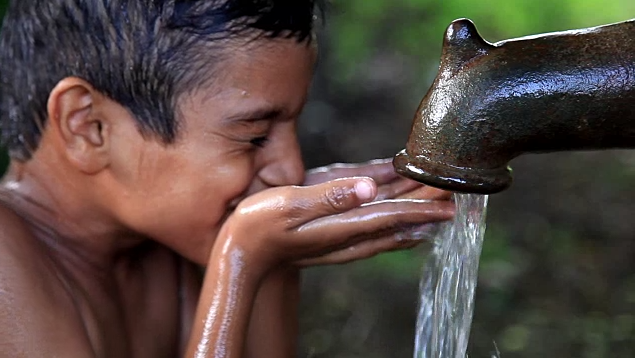More than 15.68 crore rural households – 81% of the total 19.36 crore – now have tap water connections under the government’s flagship Jal Jeevan Mission (JJM), Minister of State for Jal Shakti V. Somanna informed the Rajya Sabha on Monday.
At the time of announcement of JJM, 3.23 crore (17%) rural households were reported to have tap water connections.
The JJM follows a “Just in Time” funding approach, releasing central grants in two installments per year, with each installment split into two tranches after assessing fund utilization. Monitoring is conducted through Aadhaar-linked beneficiary data, geo-tagging of assets, third-party inspections, and IoT-based water measurement in villages. According to the Functionality Assessment 2022, 86% of households had working tap connections, 85% received adequate quantities of water, 80% had regular supply, and 87% received water meeting quality standards.
In urban areas, the Atal Mission for Rejuvenation and Urban Transformation (AMRUT) and AMRUT 2.0 have expanded water access significantly. Under AMRUT, 189 lakh new or serviced water connections have been provided against a target of 139 lakh, while AMRUT 2.0 projects cover 407 lakh connections.
Meanwhile, the Atal Bhujal Yojana (ABY), launched in April 2020, is addressing groundwater depletion in 8,203 water-stressed gram panchayats across 229 administrative blocks in Gujarat, Haryana, Karnataka, Madhya Pradesh, Maharashtra, Rajasthan, and Uttar Pradesh. With a total outlay of ₹6,000 crore, the scheme follows a participatory, performance-based approach, allocating funds to better-performing states.
The minister reported that 83 of the identified blocks have already shown improvement in groundwater levels. ABY employs a multi-tiered monitoring system, including public data access via the Atal Jal Portal, state-level steering committees chaired by chief secretaries, third-party verification, and regular audits by the Controller General of Accounts.
JJM, launched in August 2019 in partnership with states, aims to provide potable water to every rural household through functional tap connections.
Both JJM and ABY are supported by strict oversight mechanisms, regular reviews, and on-ground inspections to ensure transparency, effective fund utilization, and long-term sustainability of India’s water resources.














